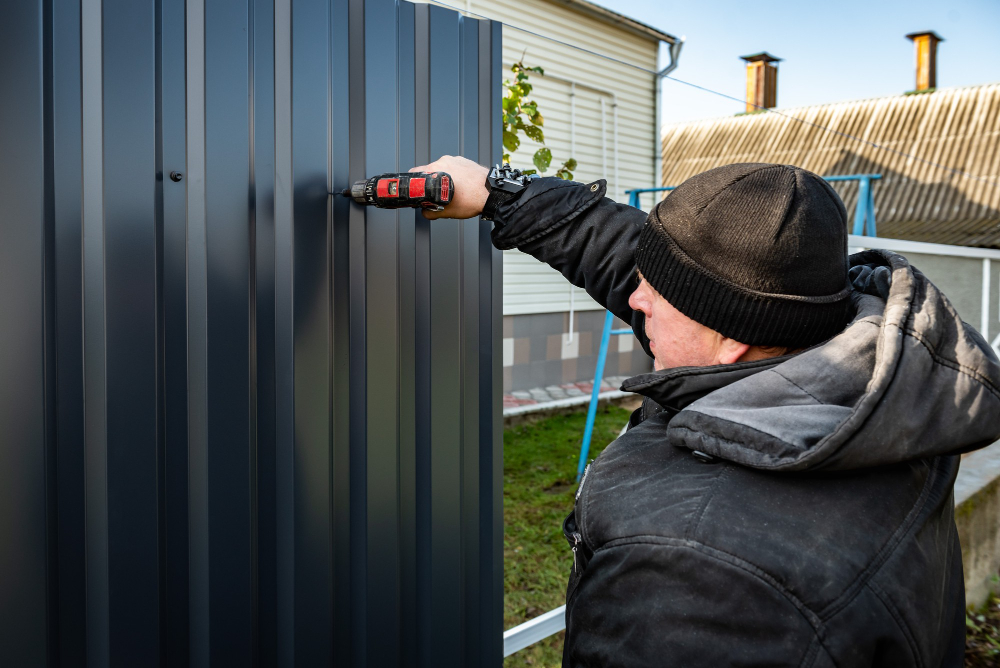Complete Guide to Fence Repair and Installation

Fences are more than just property boundaries; they offer privacy, security, and aesthetic appeal. However, like any other part of your home, fences require maintenance and sometimes even complete replacement. If you're considering a fence installation or fence repair in Jacksonville, FL, this guide is here to help you understand your options and the processes involved.
Understanding the Climate in Jacksonville, FL
Before you begin any fence repair or installation project, it's essential to understand the local climate since it influences the materials chosen and the longevity of your fence. Jacksonville experiences a humid subtropical climate with hot summers and mild winters. This could mean that wooden fences are prone to rot unless treated, whereas metal fences might suffer from rust if not adequately protected.
Common Fence Types in Jacksonville
1. Wooden Fences
Wooden fences are a popular choice due to their natural beauty and versatility. They can be painted or stained to match the exterior of your home.
- Pros: Aesthetic appeal, customizable, relatively low cost
- Cons: Prone to rot, requires regular maintenance, susceptible to termite damage
2. Vinyl Fences
Vinyl fences offer durability and are available in various designs that mimic the look of wood.
- Pros: Low maintenance, weather-resistant, long-lasting
- Cons: Higher upfront cost, limited color options
3. Aluminum Fences
Aluminum fences are known for their elegance and strength. They are often used for pool enclosures and decorative purposes.
- Pros: Rust-resistant, lightweight, low maintenance
- Cons: Not as strong as wrought iron, higher cost than wood
4. Chain Link Fences
Chain link fences are functional and affordable, making them a popular choice for security and pet containment.
- Pros: Low cost, durable, easy to install
- Cons: Less privacy, less aesthetic appeal
Signs Your Fence Needs Repair
It's crucial to address fence issues early to prevent more extensive damage. Here are some signs that your fence may need repair:
- Rotting Wood: Indicates moisture damage and requires immediate attention to prevent further decay.
- Leaning Fence: Could be due to loose posts or eroded foundations.
- Broken or Missing Boards: Compromise the fence's integrity and appearance.
- Rust on Metal Fences: Can lead to weakened structural integrity if not treated.
DIY Fence Repair Tips
If you're handy and prefer tackling home repairs yourself, here are some tips for common fence repairs:
Repairing Wooden Fence Panels
- Materials Needed: Replacement boards, nails, hammer, sandpaper, wood sealant
- Steps:
- Remove damaged boards.
- Cut new boards to size and secure them with nails.
- Sand rough edges and treat with wood sealant to protect against weather.
Fixing a Leaning Fence
- Materials Needed: Shovel, gravel, concrete, level, screws
- Steps:
- Dig around the base of the leaning post.
- Straighten the post using a level.
- Fill the hole with gravel and concrete for stability.
Addressing Rusty Chain Link Fences
- Materials Needed: Wire brush, rust converter, paint
- Steps:
- Scrub the rusty areas with a wire brush.
- Apply rust converter to neutralize corrosion.
- Paint over the treated area to protect against future rust.
When to Hire a Professional
While DIY repairs can be satisfying, some situations require professional intervention. Consider hiring a professional if:
- The damage is extensive and affects the entire structure.
- You're planning to replace your fence entirely.
- Local regulations require specific permits or compliance standards.
What to Expect from a Professional Fence Installation Service
Hiring professionals, like Masters Quality Fence in Jacksonville, FL, ensures your fence is installed correctly and efficiently. Here's what you can expect:
- Consultation: Discuss your needs, preferences, and budget with the contractor.
- Site Preparation: Removal of old fencing and clearing of the installation area.
- Installation: Setting posts, attaching panels, and ensuring everything is level and secure.
- Final Inspection: Ensuring the fence meets all standards and your satisfaction.
Choosing the Right Fence Company
Selecting a reputable fence company is crucial for the success of your project. Here are tips for finding the right company:
- Research: Look for companies with positive reviews and a strong local presence.
- Credentials: Ensure the company is licensed and insured.
- Portfolio: Review past projects to assess quality and experience.
- Quotes: Get multiple estimates to compare costs and services.
Maintenance Tips for Longevity
Once your fence is installed or repaired, regular maintenance can extend its lifespan:
- Wooden Fences: Regularly apply sealant or paint to protect against moisture.
- Vinyl Fences: Clean with soap and water to remove dirt and prevent mildew.
- Metal Fences: Check for rust and apply metal primer and paint as needed.
- General: Keep foliage and debris away from the fence to prevent moisture buildup and pests.
Conclusion
Whether you're repairing an existing fence or installing a new one, understanding the materials, processes, and maintenance involved can save time and money in the long run. For those in Jacksonville, FL, Masters Quality Fence offers expert consultation and services to meet all your fence repair and installation needs. Contact us today to get your free quote and start enhancing your property's appeal and security.